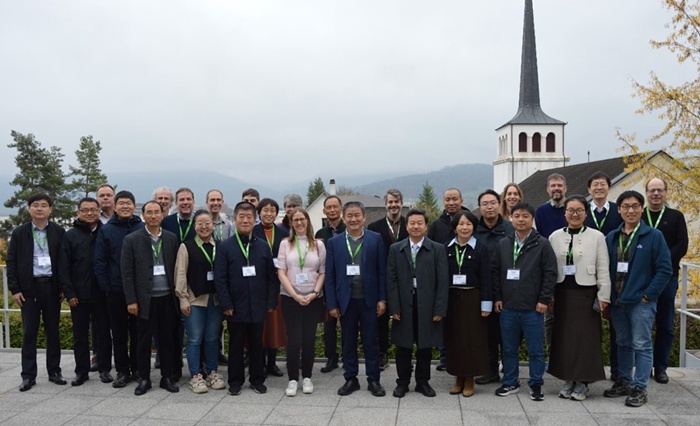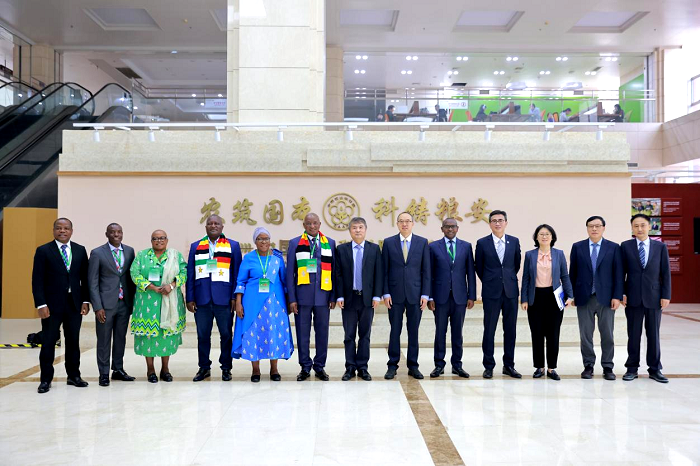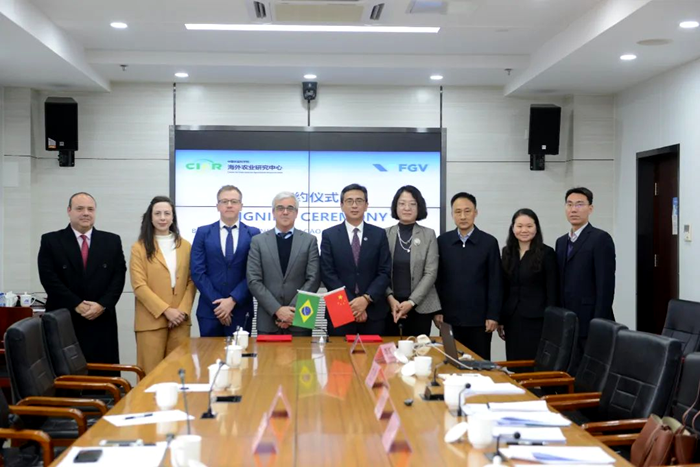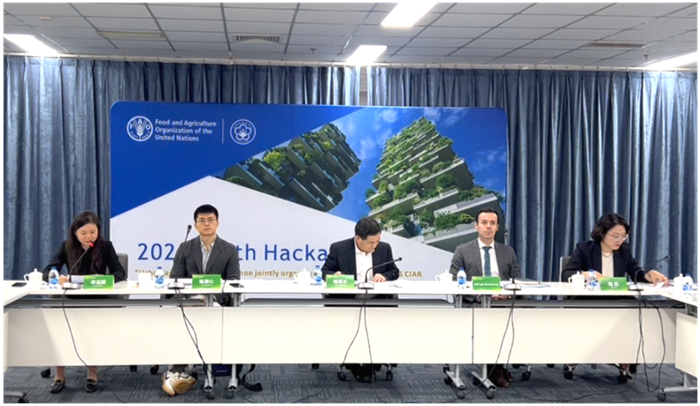[China Daily]Innovative agricultural methods yield
China's agricultural science and technology advancements played a crucial role in maintaining stable food production and supply last year, according to the president of the Chinese Academy of Agricultural Sciences.
Speaking at the CAAS 2025 Work Conference in Beijing, Wu Kongming said the academy accelerated efforts to achieve technological self-reliance, supported rural development and contributed to a record grain output exceeding 700 million metric tons.
Wu highlighted significant strides in strengthening soybean and oil crop production capacity, as well as ensuring a steady supply of essential agricultural products. Last year, CAAS introduced 18 new crop varieties and advanced 24 key technologies as part of a national campaign to enhance grain production capacity.
Nationwide, nearly 2,000 experts participated in 48 agricultural task forces, organizing more than 1,000 "field classrooms" to train farmers in advanced techniques. Precision planting technology for maize boosted yields by 21.5 percent in the Xinjiang Uygur autonomous region, while a new wheat variety set a record for output in Hebei province.
The academy also achieved breakthroughs in combating wheat yellow rust, a destructive disease, and established cross-border pest control systems to address threats from migratory pests in major grain-producing areas.
Nitrogen-efficient cultivation techniques improved yields of soybeans by 15.1 percent and peanuts by 19.5 percent across 230 demonstration zones. Meanwhile, the Zhongyouza 501 rapeseed variety showed resilience under severe frost, producing high yields.
Innovations extended to livestock and vegetable production, including pest control for cowpeas and beef cattle breeding technology. In Xinjiang's Gobi region, efficient agricultural facilities cut costs by 28 percent while increasing vegetable yields by 40 percent, Wu said.
China's push for agricultural advancements comes as global geopolitical tensions and rising imports of agricultural products, such as beef and dairy, pose challenges to domestic production and farmer incomes.
Wu stressed the need for stronger agricultural technology and international cooperation to secure food supplies and bolster supply chain resilience.
The importance of agricultural science was echoed at the Central Rural Work Conference last month, which called for accelerating the application of technological innovations and tailoring them to local conditions.
Looking ahead, CAAS plans to focus on increasing oil crop yields, diversifying food supply systems and advancing biobreeding technologies. The academy also aims to scale up high-yield crop varieties and techniques through demonstrations and field training, targeting key planting periods to ensure stable output despite adverse weather.
Additional efforts will include developing innovative methods to boost supplies of meat, dairy, vegetables and other foods, while improving processing technologies to maximize value across the supply chain. Wu said the academy will also prioritize supporting county-level industries, strengthening agricultural enterprises and fostering emerging rural industries.
-
 Dec 12, 2024Chinese Academy of Agricultural Sciences (CAAS) is launching the NARS Capacity Building through China-Africa Research Partnership Program
Dec 12, 2024Chinese Academy of Agricultural Sciences (CAAS) is launching the NARS Capacity Building through China-Africa Research Partnership Program -
 Dec 05, 2024China-CABI Project Development Workshop Held in Delémont, Switzerland
Dec 05, 2024China-CABI Project Development Workshop Held in Delémont, Switzerland -
 Dec 05, 2024Ministerial Workshop on Digital Agriculture and Rural Revitalization for BRI Partner Countries Held at CAAS
Dec 05, 2024Ministerial Workshop on Digital Agriculture and Rural Revitalization for BRI Partner Countries Held at CAAS -
 Dec 05, 2024CIAR and FGV Deepen Cooperation to Promote the Development of China-Brazil Green Agricultural Products Value Chain
Dec 05, 2024CIAR and FGV Deepen Cooperation to Promote the Development of China-Brazil Green Agricultural Products Value Chain -
 Dec 05, 20242024 Youth Hackathon for Urban Agriculture Finals Successfully Held in Beijing
Dec 05, 20242024 Youth Hackathon for Urban Agriculture Finals Successfully Held in Beijing
